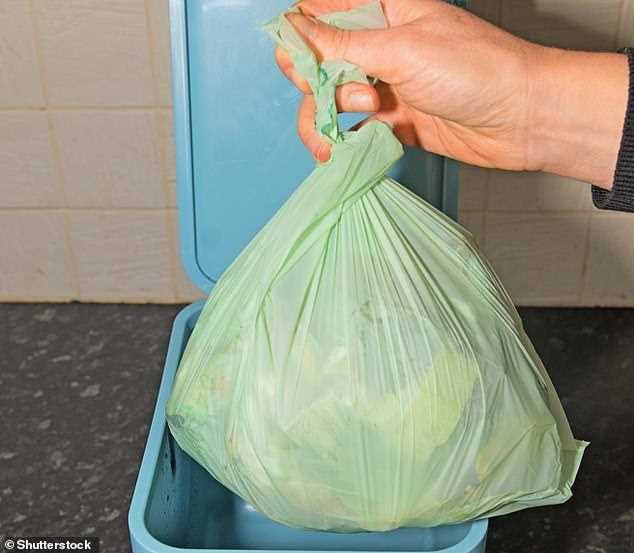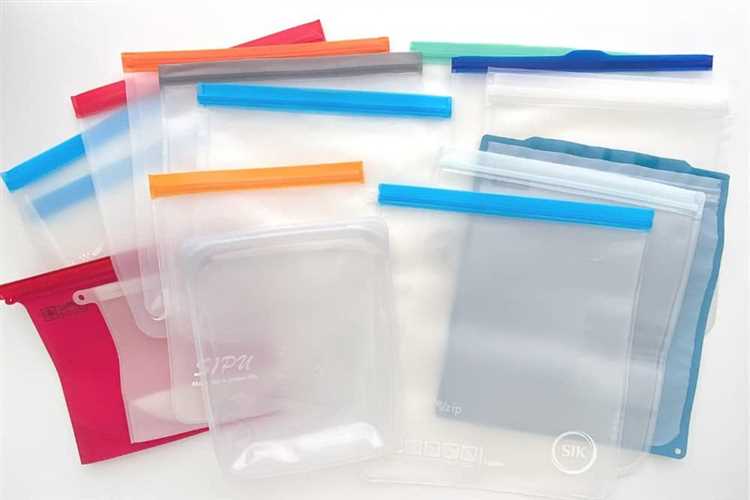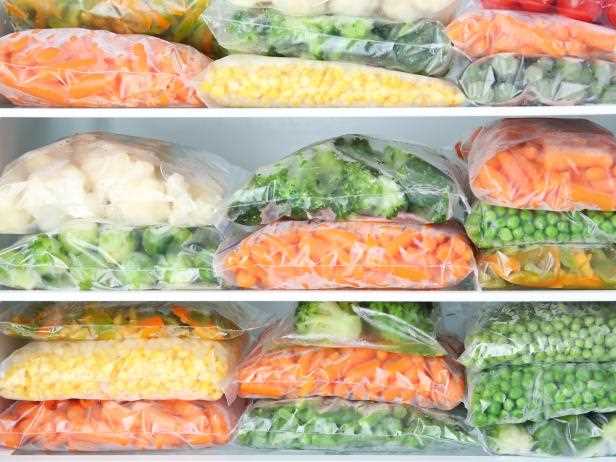Ziploc bags have become a staple in many households, as they provide a convenient way to store and preserve food. However, some people have raised concerns about whether these bags are toxic and can potentially harm our health. It is important to understand the potential risks associated with using Ziploc bags and make informed decisions when it comes to storing and handling our food.
One of the main concerns surrounding Ziploc bags is the potential for harmful chemicals to leach into the food they come into contact with. Ziploc bags are made from a type of plastic called polyethylene, which is generally considered to be safe for food storage. However, like all plastics, polyethylene can release small amounts of chemicals when exposed to heat or acidic foods. These chemicals, such as phthalates and BPA, have been linked to various health issues, including hormone disruption and developmental problems.
While the risk of chemical leaching from Ziploc bags is relatively low, it is still important to handle and store food in these bags properly. Avoid microwaving food in Ziploc bags, as the heat can cause the plastic to break down and release more chemicals. Additionally, avoid storing highly acidic or fatty foods in Ziploc bags for long periods of time, as these types of foods can increase the chances of chemical leaching. It is also advisable to check for any signs of wear and tear on the bags before using them, as this can increase the risk of chemical exposure.
In conclusion, Ziploc bags made from polyethylene are generally considered safe for food storage. However, it is important to be aware of the potential risks associated with these bags and take necessary precautions to minimize exposure to harmful chemicals. By following proper handling and storage practices, you can continue to enjoy the convenience of Ziploc bags while ensuring the safety of your food and your health.
- Are Ziploc Bags Toxic?
- The Potential Health Risks of Using Ziploc Bags
- Possible Chemical Leaching
- Potential Contamination
- Understanding the Chemicals Found in Ziploc Bags
- 1. Polyethylene (PE)
- 2. Plasticizers
- Research on the Safety of Ziploc Bags
- Materials Used in Ziploc Bags
- Potential Chemical Migration
- Possible Contamination with Microplastics
- FAQ:
- Are Ziploc bags safe to use for food storage?
- Do Ziploc bags contain any toxic chemicals?
- Can Ziploc bags be used in the microwave?
- Are Ziploc bags reusable?
- Are there any alternatives to Ziploc bags for food storage?
- Are Ziploc bags toxic?
- Can Ziploc bags leach chemicals into food?
Are Ziploc Bags Toxic?
Ziploc bags have become a staple in many households for their convenience and versatility. They are commonly used for storing and transporting food, as well as organizing and protecting various items.
One concern that has been raised is whether Ziploc bags are toxic. Ziploc bags are made from a type of plastic known as polyethylene, which is considered safe for food contact by the Food and Drug Administration (FDA). Polyethylene is used in a variety of food packaging materials and has been extensively studied for its safety.
However, it is important to note that not all Ziploc bags are created equal. Some Ziploc bags are made from polyethylene terephthalate (PET), which is a different type of plastic. PET is also considered safe for food contact by the FDA, but it may release chemicals when heated or exposed to certain conditions.
To ensure the safety of your food and the longevity of your Ziploc bags, it is best to follow the manufacturer’s instructions. Avoid exposing Ziploc bags to high temperatures, such as in the microwave or dishwasher, as this can cause the plastic to melt or release chemicals.
It is also worth noting that Ziploc bags should not be reused excessively, as they can become worn and less effective at sealing. Additionally, if a Ziploc bag becomes damaged or shows signs of wear, it is recommended to discard it and use a new one to prevent any potential health risks.
In conclusion, Ziploc bags are generally considered safe for food contact. However, it is important to be aware of the specific type of plastic used in the bags and to follow the manufacturer’s instructions to ensure their safe use.
The Potential Health Risks of Using Ziploc Bags

Ziploc bags are a popular household item used for storing and sealing food. However, there are potential health risks associated with the use of these bags. While Ziploc bags are generally considered safe for food storage, there are some concerns about their potential toxicity.
Possible Chemical Leaching
One of the main concerns is the potential for chemical leaching from the plastic of Ziploc bags into the food. Ziploc bags are typically made from polyethylene, a type of plastic that is generally considered safe. However, it is known that certain chemicals can migrate from plastic into food, especially when the plastic is exposed to heat or acidic foods.
Some studies have found that certain chemicals used in the production of plastic bags, such as phthalates and bisphenol A (BPA), can leach into food and may have adverse health effects. These chemicals are known endocrine disruptors, which means they can interfere with hormone production and regulation in the body. This can potentially lead to various health issues, including reproductive problems and increased risk of certain diseases.
Potential Contamination
Another potential health risk associated with Ziploc bags is the potential for contamination. If the bags are not properly cleaned and dried before reuse, bacteria or mold can grow on the bags, potentially leading to foodborne illness. It is important to wash Ziploc bags thoroughly in hot, soapy water and allow them to dry completely before reusing them to prevent this risk.
Additionally, if Ziploc bags are used to store foods that are high in fats or oils, there is a risk of oxidation. Fats and oils can go rancid over time, especially if exposed to air, light, and heat. This can lead to the formation of harmful compounds that can be detrimental to health if consumed.
| Potential Health Risks | Prevention Measures |
|---|---|
| Chemical leaching | Use Ziploc bags made from different materials, such as silicone or glass. |
| Contamination | Thoroughly wash and dry Ziploc bags before reuse, and avoid using them for high-fat or oily foods. |
In conclusion, while Ziploc bags are generally considered safe for food storage, there are some potential health risks associated with their use. To minimize these risks, it is advisable to consider alternative storage options, such as silicone or glass containers, and to take appropriate preventive measures, such as thorough cleaning and avoiding high-fat or oily foods.
Understanding the Chemicals Found in Ziploc Bags
Ziploc bags are a popular choice for food storage and organization, but it is important to understand the chemicals that are used in their production. While Ziploc bags are generally considered safe for their intended use, it is still important to be aware of the potential risks associated with certain chemicals.
1. Polyethylene (PE)

Ziploc bags are made from a type of plastic called polyethylene (PE). This material is considered safe for food contact and is approved by the Food and Drug Administration (FDA). Polyethylene is a low-toxicity material and is not known to leach harmful chemicals into food or beverages.
2. Plasticizers
To enhance the flexibility and durability of Ziploc bags, plasticizers are sometimes added to the polyethylene. These plasticizers can include chemicals like dioctyl phthalate (DOP) or diethylhexyl adipate (DEHA). While these chemicals have been linked to potential health concerns in studies on animals, the levels found in Ziploc bags are considered to be very low and not expected to pose a significant risk to human health.
It is worth noting that Ziploc bags are not designed to be used with high-temperature foods or liquids, as this can increase the likelihood of chemical leaching. It is always a good idea to follow the manufacturer’s instructions and guidelines for safe use.
Overall, when used as intended, Ziploc bags are a safe and convenient option for food storage. It is important to make informed choices about the products we use, and understanding the chemicals found in Ziploc bags can help us make those choices with confidence.
Research on the Safety of Ziploc Bags

Ziploc bags are commonly used for storing and transporting food, but there has been some concern about their safety. Several studies have been conducted to evaluate the potential health risks associated with these bags and to determine whether they contain any toxic substances.
Materials Used in Ziploc Bags
Ziploc bags are made from a type of plastic called low-density polyethylene (LDPE). LDPE is considered to be safe for food contact and is widely used in food packaging. It is resistant to chemicals, moisture, and temperature changes, making it a suitable choice for storing food.
Potential Chemical Migration
One of the primary concerns regarding the safety of Ziploc bags is the potential migration of chemicals into food. Studies have shown that under normal use conditions, LDPE does not release harmful substances into food. The FDA has strict regulations in place to ensure the safety of food contact materials, and LDPE complies with these regulations.
However, it is important to note that extreme temperatures and certain types of food (such as fatty or acidic foods) can increase the likelihood of chemical migration. To minimize this risk, it is recommended to avoid using Ziploc bags for storing hot or fatty foods for an extended period of time.
Possible Contamination with Microplastics
Another concern regarding the safety of Ziploc bags is the potential for contamination with microplastics. Microplastics are tiny particles of plastic that can be ingested and accumulate in the body over time. While some studies have found the presence of microplastics in certain food packaging materials, including plastic bags, the levels detected have generally been low and not considered a significant health risk.
Nevertheless, it is important to handle and dispose of Ziploc bags properly to minimize the release of microplastics into the environment. Recycling programs and proper waste management can help reduce the accumulation of plastic waste and potential exposure to microplastics.
In conclusion, research indicates that Ziploc bags made from LDPE are generally safe for storing and transporting food. However, it is important to use them appropriately and follow recommended guidelines to minimize any potential health risks.
FAQ:
Are Ziploc bags safe to use for food storage?
Yes, Ziploc bags are safe to use for food storage. They are made from materials that are approved by the Food and Drug Administration (FDA) for direct contact with food. However, it is always important to follow the manufacturer’s instructions and guidelines for safe and proper use.
Do Ziploc bags contain any toxic chemicals?
No, Ziploc bags do not contain any toxic chemicals. They are made from low-density polyethylene (LDPE) plastic, which is a safe and non-toxic material. LDPE is considered food-safe and does not leach any harmful chemicals into the food when used properly.
Can Ziploc bags be used in the microwave?
Yes, Ziploc bags can be used in the microwave. However, it is important to use caution and follow the manufacturer’s guidelines. Ziploc bags are labeled with a microwave-safe symbol, indicating that they can be safely used in the microwave as long as they are not overheated or exposed to high temperatures.
Are Ziploc bags reusable?
Yes, Ziploc bags are reusable. They are designed to be washed and reused multiple times. However, it is recommended to inspect the bags for any signs of wear or damage before reuse. It is also important to properly clean and dry the bags before storing food in them.
Are there any alternatives to Ziploc bags for food storage?
Yes, there are alternatives to Ziploc bags for food storage. Some options include reusable silicone food storage bags, glass containers with airtight lids, and beeswax wraps. These alternatives are also considered safe for food storage and offer environmentally friendly options.
Are Ziploc bags toxic?
According to the article, Ziploc bags are generally considered safe for food storage. They are made from low-density polyethylene (LDPE), which is food-safe and commonly used in food packaging. However, it is important to note that not all Ziploc bags are created equal. Some varieties may contain additives, such as antibacterial agents or fragrances, which can potentially be harmful. It is recommended to choose the plain, unscented variety of Ziploc bags to ensure safety.
Can Ziploc bags leach chemicals into food?
Ziploc bags are made from low-density polyethylene (LDPE), which is considered safe for food storage. However, there is a possibility of chemicals leaching into food, especially when the bags are used for high-heat cooking or microwaving. It is advisable to follow the specific usage instructions provided by the manufacturer and avoid exposing Ziploc bags to excessive heat. In general, it is recommended to transfer hot foods into a microwave-safe container before reheating to minimize potential risks.